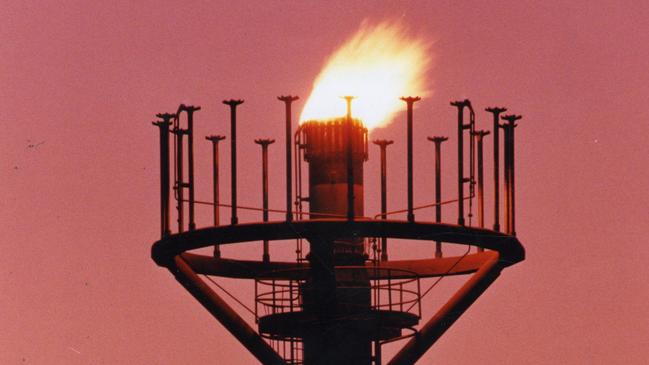Australian Energy Council attacks basis for gas reservation
The Australian Energy Council has attacked the basis of modelling used to argue for a gas reservation policy.

Correction: This article has been amended to correct a misattribution, see below for details.
The Australian Energy Council, which represents the nation’s biggest gas producers, has attacked the basis of modelling presented to the Coalition arguing for potential government intervention in the east coast gas sector.
A gas reservation policy could slash $270 off annual household power bills, according to modelling sent to the federal government by the Centre Alliance as part of a major energy reform package.
Centre Alliance senator Rex Patrick consulted the Institute for Energy Economics and Financial Analysis — a US-based non-profit group that backs climate-friendly investment — as part of negotiations with the government to boost supplies and lower gas and power prices on the eastern seaboard.
Each Australian household would save on its annual electricity bill if the government intervened in the market and set a gas reserve price, the IEEFA study found.
But the big energy producers took issue with the IEEFA’s claim that the solution to excessively high gas prices is a full domestic gas reservation policy fixing prices at $5 a gigajoule on existing and future gas production.
“When tested against the available evidence, the IEEFA report does not pass muster, making unjustified assertions and drawing a conclusion that does not accord with the views of regulators such as WA’s Economic Regulation Authority and the Australian Competition & Consumer Commission,” said the AEC’s wholesale policy manager Duncan MacKinnon.
The battle between suppliers and users on the east coast has been sparked after gas prices jumped to $12 a gigajoule, up to three times historical levels, while long-term contracts are also proving difficult to negotiate for some manufacturers.
Gas shortages on the east coast are also set to emerge within three years and prices will remain high for the next decade ratcheting up pressure on large industrial users struggling with soaring tariffs, experts have warned.
The AEC, which represents big power and gas producers including Origin Energy, AGL Energy and EnergyAustralia, questions a raft of assumptions made by the IEEFA’s gas expert Bruce Robertson in the report.
A claim in the report that gas prices were $3-$4 per gigajoule prior to 2014 is at odds with a COAG report stating prices to the “city gate” have always been $5/GJ or more. The council also attacks a claim gas consumers should have been paying the netback price of $5.46/GJ for spot gas in May, stating ACCC prices have shown netback prices of more than $6.50/GJ for 2019 and 2020.
It also disputes the IEEFA’s assertion that gas sets the price of electricity in Australia, noting the dominant role of hydro in the generation mix, and questions the assertion that West Australia has a successful domestic reservation policy. “Short-term market interventions to the benefit of one sector of the economy do little to address the underlying cause of supply limitations — a need for governments to facilitate responsible gas exploration and development,” Mr MacKinnon said.
However, Mr Robertson told The Australian he stood by both his report and the prices quoted and called on the AEC’s members to add further transparency to the debate by providing more information on their pricing to the market.
Fears that WA’s domestic reserve would damage investment are completely unfounded as demonstrated by one of the biggest LNG spending programs in the state during the last decade, Mr Robertson added.
Mr Patrick said earlier this month he had spoken at length with Mr Robertson as part of his research into the east coast gas industry and said the IEEFA’s cost savings from gas reservation roughly tallied with other estimates made by economists he had spoked to.
Mr Patrick yesterday said he had not yet reviewed the council’s claims about the IEEFA report.
The government is expected to raise the prospect of a domestic gas reservation policy through the formal Coalition of Australian Governments process.
Correction:
This story has been amended to reflect that Mr Robertson said he stands by the report and has called on AEC members to provide more transparent pricing, not Mr MacKinnon as originally inferred.

